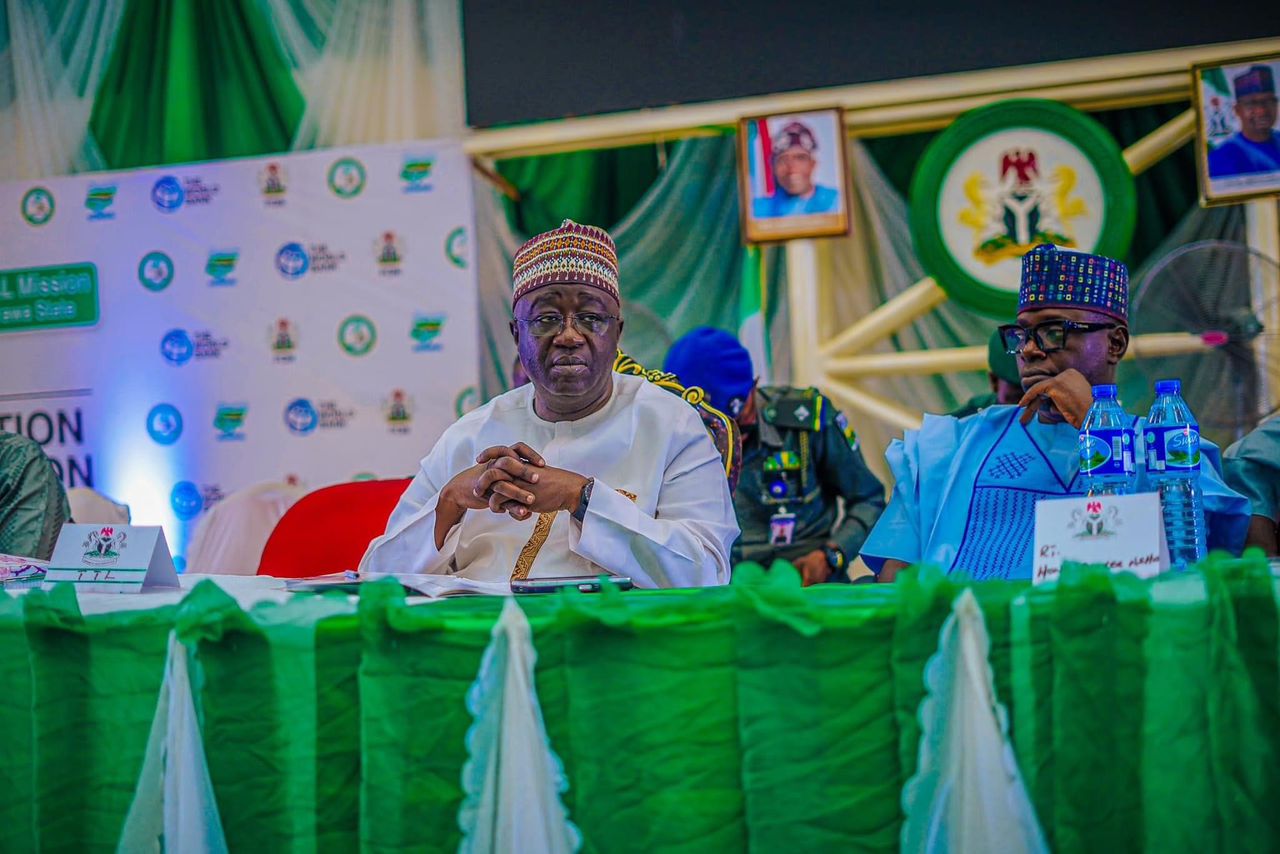Gov Sule hails ACReSAL as beacon of hope for agric landscapes

By Faridat Salifu
The Governor of Nasarawa State, Engr. Sule Abdullahi, has described the Agro-Climatic Resilience in Semi-Arid Landscapes (ACReSAL) project as beacon of hope for a transformation agriculture and landscape restoration in Nigeria’s semi-arid regions.
The governor said this during the joint World Bank/FAO/FGN Hybrid Implementation Support Mission for ACReSAL, held at weekend in Nasarawa State, North Central Nigeria.
Represented by his deputy, Dr. Emmanuel Akabe, highlighted the project’s critical role in combating climate change impacts on agriculture.
He said, “Nasarawa State, like other semi-arid regions, faces severe climate change effects that threaten security and livelihoods,” noting that through collaborative efforts and innovative approaches like ACReSAL, “we can build community resilience and ensure sustainable agricultural practices.”
The ACReSAL project aims to restore one million hectares of degraded land in Northern Nigeria, significantly contributing to the Federal Government’s goal of restoring four million hectares by 2030.
This initiative is expected to reduce the vulnerability of millions of impoverished people while empowering them to contribute to environmental sustainability.
ACReSAL’s community-driven model ensures that local populations are actively involved in understanding, protecting, and sustaining the project.
This approach ensures that interventions are tailored to meet community needs, enhancing long-term sustainability.
“ACReSAL exemplifies partnership and cooperation, uniting government agencies, development partners, academics, local communities, and NGOs to tackle our shared environmental challenges,” Dr. Akabe remarked.
“Leveraging technology, research, and community engagement, we aim to transform agricultural landscapes and secure a sustainable future.”

Dr. Joy Iganya Agene, Senior Environmental Specialist for the World Bank Nigeria and Task Team Leader for ACReSAL, stated that the mission’s purpose is to evaluate the project’s implementation across 19 Northern states and the Federal Capital Territory.
The team will inspect communities and lands designated for restoration and engage in Community Resolving Fund activities.
“Nasarawa is advancing swiftly within ACReSAL, thanks to state leadership support,” Dr. Agene noted.
She mentioned that Nasarawa is poised to qualify for phase 2 of ACReSAL Investment due to its demonstration of commitment and technical capacity.
The funding from ACReSAL is intended to mitigate climate change impacts, build vulnerable communities’ adaptive capacity, and restore natural water courses in Nasarawa State.
Mr. Abdulhamid Umar, National Project Coordinator for ACReSAL, emphasized the mission’s goal of verifying implementation results and concrete deliverables for the project’s four components.
Mr. Precious Agbesor of the FAO commended the partnership between the World Bank and the Federal Government, noting that Component B of ACReSAL, focused on Community Climate Resilience, is central to the project. FAO supports ACReSAL in restoring 350,000 hectares of degraded land.
Dr. Napoleon Gyobe Elias, Nasarawa State ACReSAL Project Coordinator, outlined specific activities aimed at enhancing adaptive capacities and promoting sustainable development in the state.
The ACReSAL initiative represents a significant stride in addressing climate change and fostering sustainable agriculture in Nigeria’s semi-arid regions.
